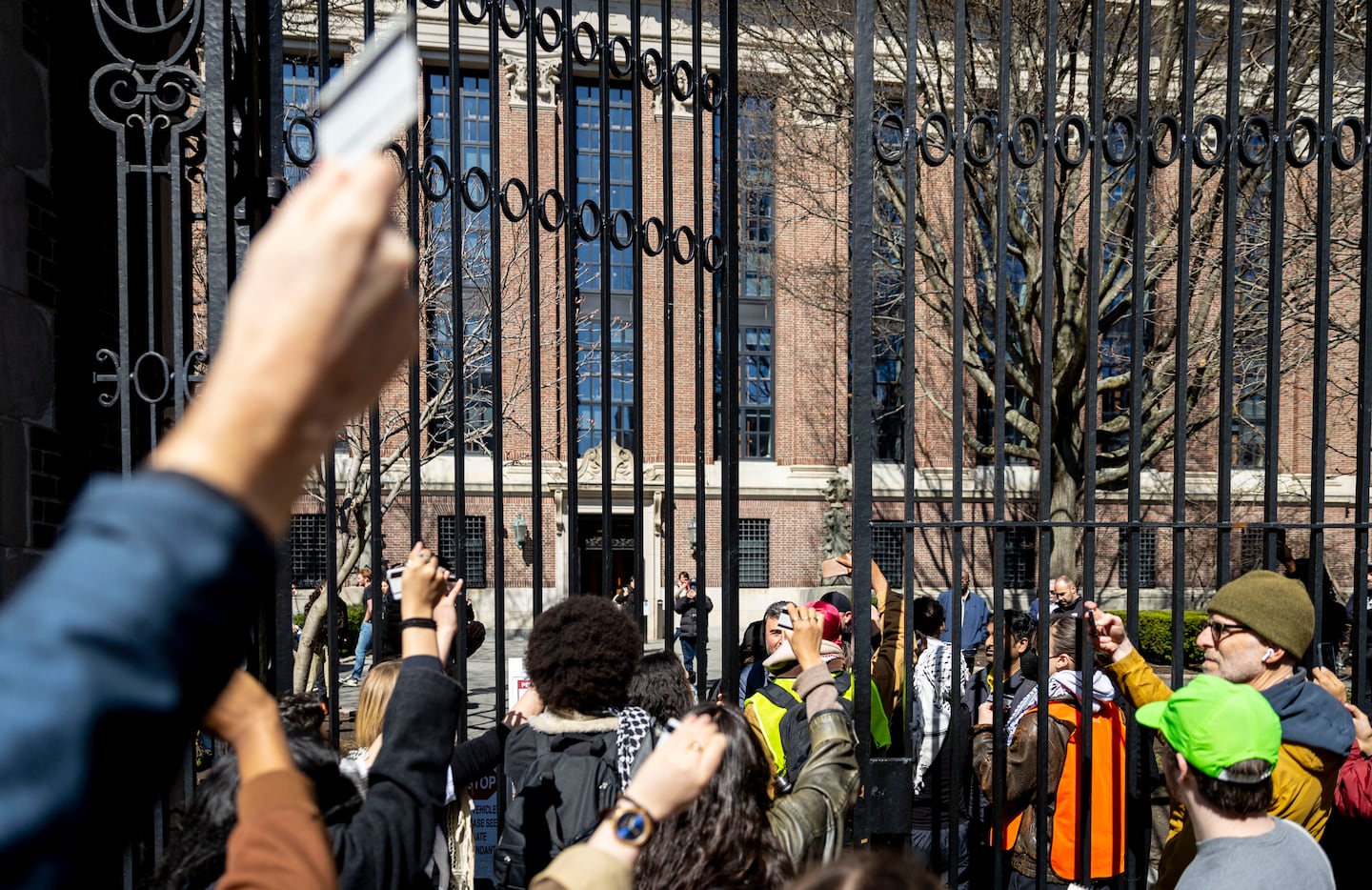Moreover, the university must implement “merit-based” admissions and hiring policies and demonstrate that the changes are “durable,” according to the letter.
It asks Harvard to create new “[o]versight and accountability for biased programs that fuel antisemitism” and demands changes to student discipline procedures, including holding student group leaders accountable for violations of Harvard policy, and banning masks that can conceal the identity of protesters. And it asks Harvard to review and report disciplinary actions related to “antisemitic rule violations” since the Oct. 7, 2023, Hamas attack on Israel.
Harvard must also offer its “full cooperation” with the US Department of Homeland Security, the letter says.
In the letter, the task force described those directives as “immediate next steps” that are “necessary” for Harvard to have a “continued financial relationship with the United States government.”
In 2023, Harvard received about 10 percent of its revenue from federal grants and contracts. The $9 billion of funding placed under review Monday includes grants and contracts with Harvard University itself, as well as institutions affiliated with the school, such as Mass General Brigham and Boston Children’s Hospital.
A Harvard spokesperson confirmed the university received the letter from the administration’s antisemitism task force.
In the letter, the task force alleged that Harvard “has fundamentally failed to protect American students and faculty from antisemitic violence and harassment.”
The Harvard ultimatum is the latest move in the Trump administration’s crackdown on elite universities, which it accuses of cultivating radical, leftist thought and allowing antisemitism to “fester,” especially in the wake of the Hamas attack on Israel and the campus protest movement over Israel’s military campaign in Gaza. Some saw elements of the protest movement as antisemitic, and tied to broader concerns about ostracization of Jewish students perceived as supportive of Israel.
The Trump administration has taken up the issue, announcing civil rights investigations at dozens of colleges and universities, and cutting research grants this week at Princeton University and Columbia University. The administration has also arrested and attempted to deport international students tied to pro-Palestinian advocacy, such as Tufts University graduate student Rümeysa Öztürk, who was detained by masked federal agents in Somerville last week.
The government has presented no evidence of wrongdoing by Öztürk, who had a student visa. A Tufts spokesperson said she was a student in good standing.
The Harvard review follows a similar inquiry at Columbia University that began last month.
There, the government announced a review of billions of federal funding, canceled $400 million of grants, and then sent a list of demands, including changes to the school’s rules governing protests and placing a Middle East studies department under new oversight. Columbia’s leaders granted nearly all of the demands.
Harvard has already implemented policies similar to the Columbia demands, including adopting a formal definition of antisemitism favored by the Trump administration and enforcing so-called time, place, and manner rules meant to control protests.
On Wednesday, Harvard placed a pro-Palestinian student organization on probation over what the group described as its alleged role in a peaceful protest Tuesday. Last week, Harvard moved to replace the leadership of its Center for Middle Eastern Studies, which has faced accusations of biased teaching and programming on Israel.
Critics view these measures as attempts to repress pro-Palestinian views and appease the Trump administration. Supporters say Harvard’s leaders have made a serious effort to combat antisemitism and rein in disruptive protests, and worry the Trump intervention could disrupt progress.
 Protesters showed their Harvard IDs as university security guards tried to close a gate during a rally on Tuesday.Brett Phelps for The Boston Globe
Protesters showed their Harvard IDs as university security guards tried to close a gate during a rally on Tuesday.Brett Phelps for The Boston GlobeUniversity leaders and academics have been split on how to respond to the Trump crackdown, with some arguing for mounting a unified resistance, and others opting for a more conciliatory approach designed to soften the blows.
In a letter to the campus community Monday after the review of federal funding was announced, Harvard president Alan Garber said, “If this funding is stopped, it will halt life-saving research and imperil important scientific research and innovation.”
He also said: “We fully embrace the important goal of combatting antisemitism, one of the most insidious forms of bigotry. Urgent action and deep resolve are needed to address this serious problem that is growing across America and around the world.”
“We will engage with members of the federal government’s task force to combat antisemitism to ensure that they have a full account of the work we have done and the actions we will take going forward to combat antisemitism,” he said.
The letter was addressed to Harvard president Alan Garber and Penny Pritzker, senior fellow of the Harvard Corporation, the university’s top oversight board. It was signed by officials from three federal agencies participating in the Trump administration’s antisemitism task force: Josh Gruenbaum, Commissioner of the General Services Administration’s Federal Acquisition Service; Sean Keveney, acting general counsel of the US Department of Health and Human Services; and Thomas Wheeler, acting general counsel of the US Department of Education.
Mike Damiano can be reached at mike.damiano@globe.com.